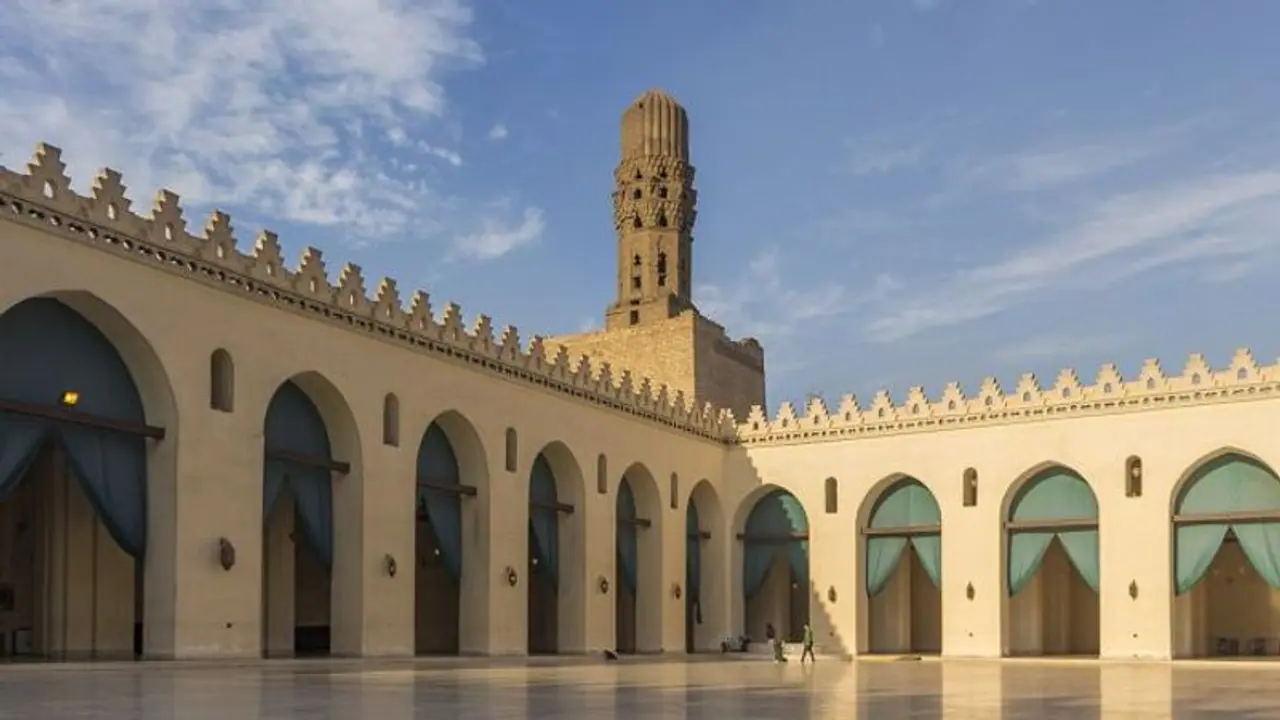Situated in the vibrant city of Cairo, Egypt, the Al-Hakim Mosque, alternatively referred to as Al-Hakim bi-Amr Allah Mosque, stands as a revered Islamic site. Its profound historical and religious significance resonates deeply within the hearts of the Muslim community.
Prime Minister Narendra Modi on Sunday visited Cairo's historic Al-Hakim Mosque. The Al-Hakim Mosque, also known as Al-Hakim bi-Amr Allah Mosque, is a significant Islamic religious site located in Cairo, Egypt. It holds great historical and religious importance for the Islamic community. The Prime Minister's visit to the mosque is significant due to the large presence of the influential Dawoodi Bohra Muslim community in the area.

Here are some things you need to know about the Al-Hakimi Mosque:
* The mosque was commissioned and built by the Fatimid Caliph, Al-Hakim bi-Amr Allah, in the 11th century. Al-Hakim was the sixth Fatimid caliph and ruled Egypt from 996 to 1021.
* Architectural Style: The mosque showcases a unique architectural blend of various Islamic influences, including Fatimid, Abbasid, and Umayyad styles. It exhibits intricate details, ornate designs, and a harmonious combination of geometric patterns and calligraphy.
* Religious Significance: Al-Hakim Mosque is considered one of the holiest Islamic sites, as it contains the mausoleum of the Fatimid Caliph Al-Hakim. Many Muslims visit the mosque to pay their respects and seek blessings.
* Size and Layout: The mosque complex is expansive, covering an area of approximately 16,000 square meters (172,222 square feet). It consists of various sections, including prayer halls, courtyards, minarets, and the mausoleum itself.
* Al-Hakim Mosque's Restoration: Over the centuries, the mosque underwent multiple renovations and refurbishments. Notably, the most extensive restoration took place in the 1980s, led by the Egyptian government, to preserve and revive its historical splendour.
* Religious Tolerance: Despite being an Islamic site, Al-Hakim Mosque has showcased an exceptional example of religious tolerance. During certain periods, the mosque allowed Christians and Jews to hold prayers within its premises, promoting interfaith dialogue and harmony.
* Iconic Minarets: The mosque features two tall minarets that serve as distinctive landmarks. These minarets exhibit intricate architectural details and provide stunning panoramic views of Cairo when visitors climb to the top.
* Access and Visitor Experience: Al-Hakim Mosque is open to visitors, both Muslims and non-Muslims. However, it's important to adhere to the mosque's regulations and dress modestly when entering. Visitors can explore the mosque's interior, admire its architecture, and experience the serene atmosphere.
* Cultural and Touristic Importance: Al-Hakim Mosque is not only a religious site but also a significant cultural and touristic attraction in Cairo. Its rich history, architectural grandeur, and spiritual ambience make it an appealing destination for tourists and history enthusiasts alike.
From the India Gate: Mutiny within Kerala CPI-M, 'Shiv' Tandav and more
